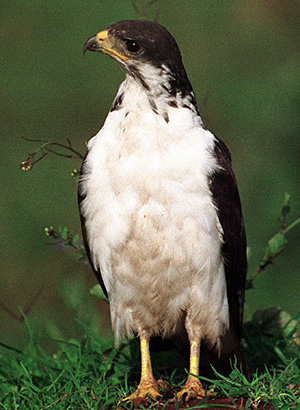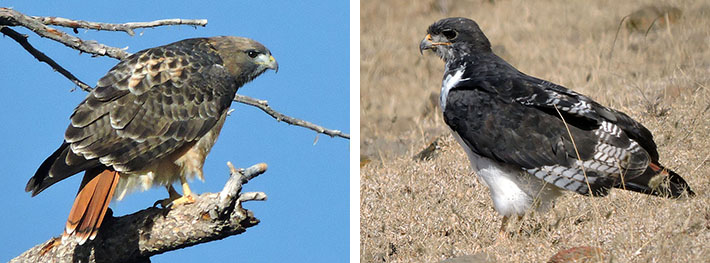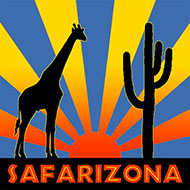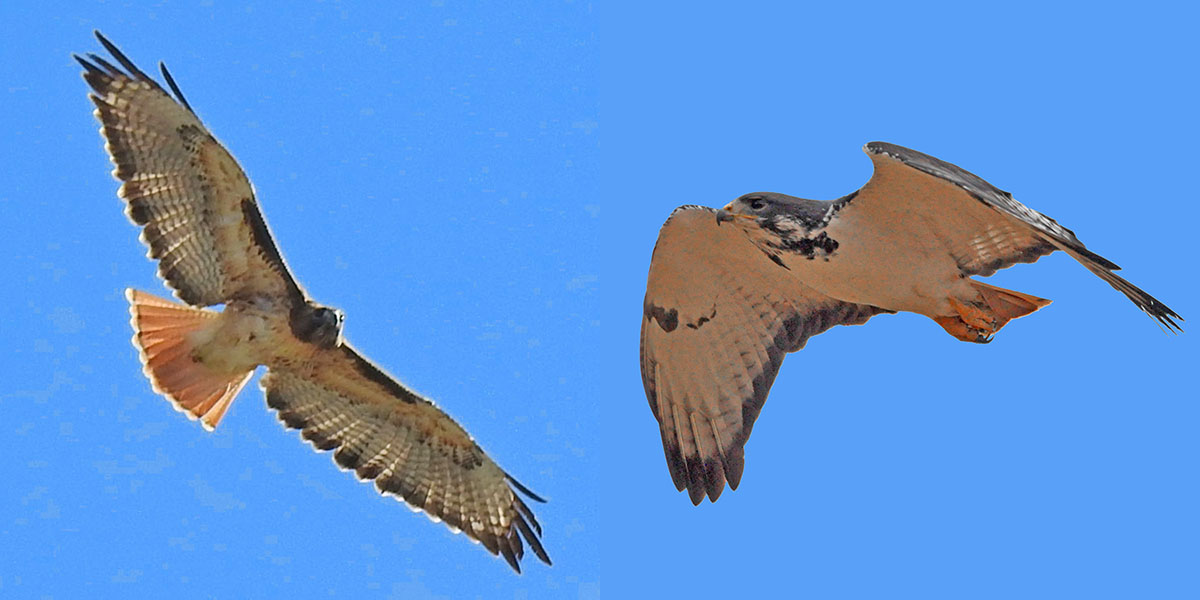I dread meeting this bird on safari. I try to distract my clients’ attention:
“Er….Everybody, look at that hartebeest on the left”It’s a beautiful hawk about 2ft tall, who often perches on top of a tree displaying his pure white breast to the morning sun. Try as I will to ignore him, someone always spots him.
“What’s that big hawk on the right, Dave?”

“(sigh)…It’s an Augur Buzzard”.
“A what? An Ogre Bustard?”
“No. A-U-G-U-R as in prophecy. Buzzard as in hawk”
“Oh, so he’s a scavenger then?”
“Noooo!…Let me explain….”
“Hey! Is that a lion?”
“No, it’s a hartebeest.”
“Are we nearly there yet?….”
Back in the day, the Europeans were familiar with large brown hawks sailing on broad wings over hill and farmland, searching for rabbits and rodents. The Romans called them buteo, which morphed through Old French buson or buison to Anglo-Norman buisart and hence to buzzard. Buzzards were known to be predators who rarely scavenged; the familiar carrion-eaters were black or red kites around the cities, and vultures in southern Europe.
When European naturalists explored Africa, they found their familiar Common Buzzard on winter migration, and met similar native species which they named Mountain Buzzard, Jackal Buzzard, and, ugh, Augur Buzzard. “Why augur?” I would like to ask Herr Ruppell (1836) who named it. It’s not from “auger”, which is a kind of drill, and this is not a boring bird. An Augur in Roman times was a kind of prophet or soothsayer, who interpreted the intentions of the gods from natural signs such as the movement (or entrails) of birds.
The Europeans who settled the New World were more taxonomically confused. They took the ‘buzzard concept’ and applied it to a large black soaring scavenger, a.k.a. Turkey Vulture. The closest relative of the European buzzard was named, quite accurately, Red-tailed Hawk.
So the Red-tailed Hawk which occasionally soars over our saguaros in Arizona is the ecological equivalent of the Augur Buzzard in Ngorongoro and Serengeti. They are virtually the same bird, with brick-red tails and keen dark eyes.
“Just think of it as an African red-tailed hawk”, I tell my confused American tourists.


